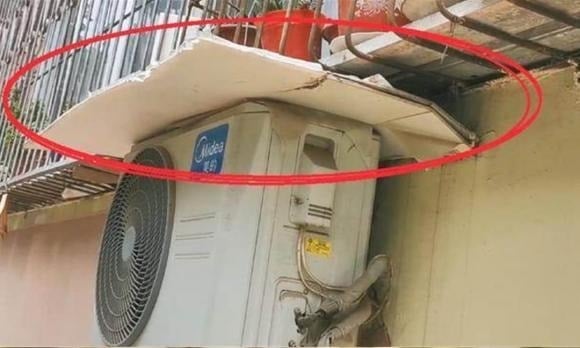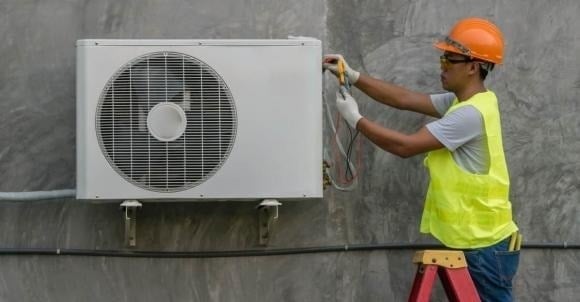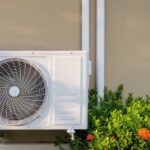Should Air Conditioner Condenser Units Be Covered From Sun and Rain?
Do outdoor AC units need protection from sun and rain?
With summer in full swing, air conditioners are working overtime to provide much-needed relief from the oppressive heat. However, some people wonder if they should cover their outdoor AC units, especially since they are exposed to the elements.
Interestingly, when choosing the location for your outdoor unit, engineers have already taken these factors into account. Air conditioners are designed to withstand environmental conditions like sun and rain and are built with excellent waterproof capabilities.

Summer is the time when air conditioners are in constant use to provide cool and comfortable air amid the scorching heat.
While there are many AC covers available on the market, rain and wind typically don’t affect the outdoor unit significantly. However, if the unit is exposed to rainwater and sunlight for extended periods, rust may form on the exterior.
The water-resistance and sun protection of the outdoor unit remain highly effective. Rainwater is directed out during the operation of the compressor, and in fact, rain can improve the energy efficiency of the unit. Moreover, rain helps to clean dust and dirt from the surface of the outdoor unit, enhancing its performance.
Ultimately, issues with air conditioners are rarely caused by rain or wind but are mostly due to improper installation. Therefore, when installing an air conditioner, it’s crucial to seek professional help to ensure optimal performance.
Guide to Installing an Outdoor AC Condenser Unit
First and foremost, the installation location is critical. Ideally, the outdoor unit (also known as the condenser unit) should be placed in a well-ventilated area, facing northeast to minimize direct sunlight. A distance of about 12 cm should be maintained between the condenser and evaporator units. Careful selection of the installation location ensures effective heat dissipation, thereby not compromising the cooling efficiency of the air conditioner.
Next, checking the safety of the wall is essential. When installing a support bracket for the outdoor unit, ensure it is securely attached to prevent the risk of it falling.

The outdoor unit, also known as the condenser unit, should ideally be placed in a well-ventilated area, facing northeast to minimize direct sunlight exposure.
Third, for convenient drainage of condensate, the condenser unit should be positioned slightly higher than the water outlet, approximately 2 cm above it, without tilting excessively. Controlling the position of the internal and external devices is also crucial to ensure the efficient operation of the water pipe system.
During the summer, air conditioner usage surges. However, it’s important to use the appliance correctly. Avoid frequently turning the air conditioner on and off, as this not only wastes electricity but can also damage the unit and reduce its lifespan.






































